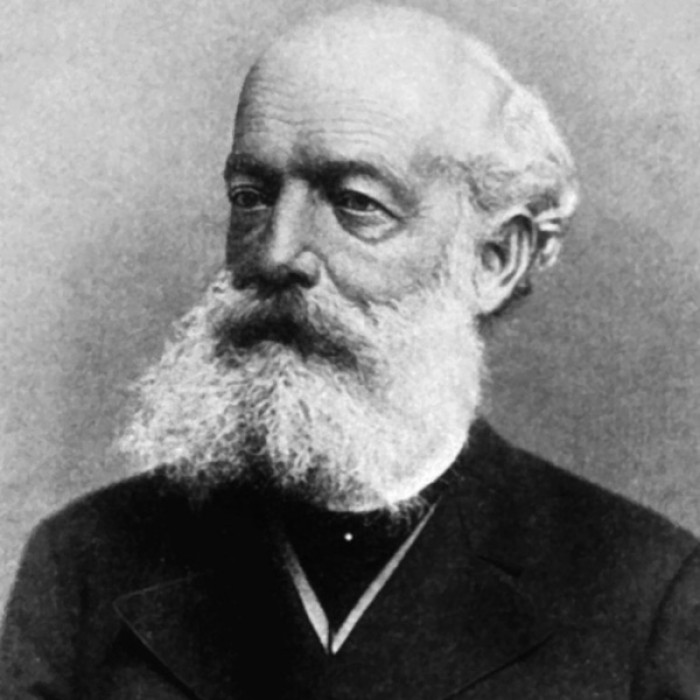
Friedrich August Kekulé, later Friedrich August Kekule von Stradonitz (7 September 1829 – 13 July 1896) was a German organic chemist.
From the 1850s until his death, Kekulé was one of the most prominent chemists in Europe, especially in theoretical chemistry.
He was the principal founder of the theory of chemical structure.
Kekulé never used his first given name; he was known throughout his life as August Kekulé.
After he was ennobled by the Kaiser in 1895, he adopted the name August Kekule von Stradonitz, without the French acute accent over the second "e".
The son of a civil servant, Kekulé was born in Darmstadt, the capital of the Grand Duchy of Hesse.
After graduating from secondary school (the Grand Ducal Gymnasium in Darmstadt), in the fall of 1847 he entered the University of Giessen, with the intention of studying architecture.
After hearing the lectures of Justus von Liebig in his first semester, he decided to study chemistry.
Following four years of study in Giessen and a brief compulsory military service, he took temporary assistantships in Paris (1851–52), in Chur, Switzerland (1852–53), and in London (1853–55), where he was decisively influenced by Alexander Williamson.
His Giessen doctoral degree was awarded in the summer of 1852.
In 1856 Kekulé became Privatdozent at the University of Heidelberg.
In 1858 he was hired as full professor at the University of Ghent, then in 1867 he was called to Bonn, where he remained for the rest of his career.
Kekulé's idea of assigning certain atoms to certain positions within the molecule, and schematically connecting them using what he called their "Verwandtschaftseinheiten".
The idea that the number of valences of a given element was invariant was a key component of Kekulé's version of structural chemistry.
Kekulé's most famous work was on the structure of benzene.
In 1865 Kekulé published a paper in French (for he was then still in Francophone Belgium) suggesting that the structure contained a six-membered ring of carbon atoms with alternating single and double bonds.
Kekulé argued for his proposed structure by considering the number of isomers observed for derivatives of benzene.
He said that he had discovered the ring shape of the benzene molecule after having a reverie or day-dream of a snake seizing its own tail.
A larger-than-life size monument of Kekulé is situated in front of the former Chemical Institute at the University of Bonn.
In 1895 Kekulé was ennobled by Kaiser Wilhelm II of Germany, giving him the right to add "von Stradonitz" to his name, referring to a possession of his patrilineal ancestors in Stradonice, Bohemia.
Source: Link

1564 - 1616

1803 – 1882

1854 – 1900

1942 – 2016

1928 – 2014

1835 – 1910

1869 – 1948

1884 – 1962
1898 – 1963

1929 – 1993

1879 – 1955

1809 – 1865

1807 – 1870

1800 – 1859

1795 – 1821

1755 – 1793

1984 -

1989 – 2011

1943 – 2001

1815 – 1902

1929 – 1994

1767 – 1848
